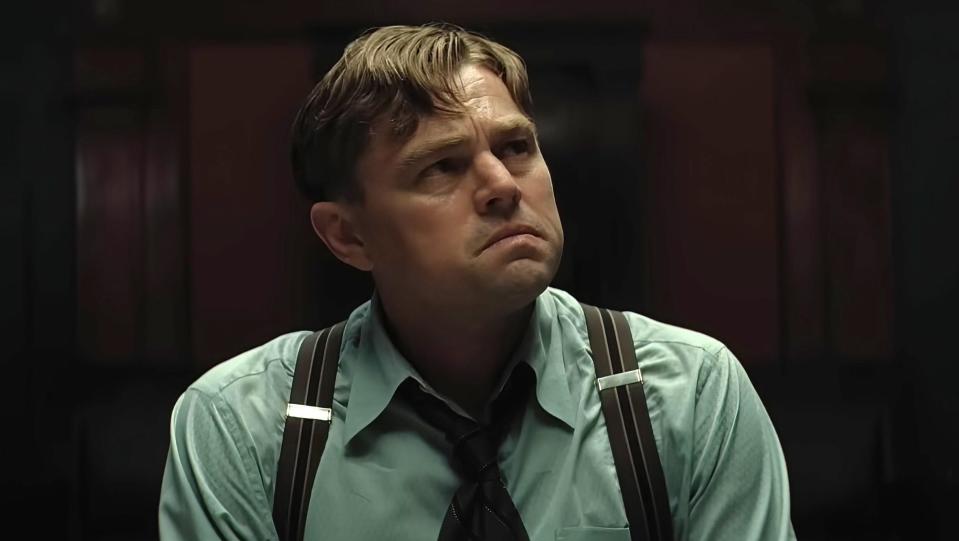Peter Bart: The Film Nerds And ‘Barbie’-Phobes Are Here, But That Won’t Stop A Big Oscar Bump

Given the strong slate of this year’s Oscar nominees, the pre-Academy Awards season has been devoid of the intrigues and mud-slinging of previous epochs. Oops! – could a new outbreak of Barbie-phobia break the harmony and bring naysayers out of the shadows?
I already hear a few negative murmurs: Not only is Barbie suddenly “a bad movie,” but Leonardo DiCaprio should have played the FBI agent in Killers of the Flower Moon, as his director originally planned. And Oppenheimer was a brilliant movie but arguably could have focused on a different physicist.
More from Deadline
While most of us are disposed to admire the Oscar Best Picture nominees, and may even vote accordingly, this is the moment when we always hear from grumpy film nerds. They led the wave of indignation in 1982 when ET was critiqued for lacking the cultural depth of Gandhi. ET made us smile, not yawn, it was later pointed out, but Gandhi won.
RELATED: Every Oscar Best Picture Winner Since 1929
When The New York Times displayed its “Barbie Is Bad” diatribe as its lead editorial, it seemed to prompt petulant critiques on other nominees. The Times endorsed the “snubs” of Greta Gerwig as Barbie’s director and Margot Robbie as Best Actress.
RELATED: Oscars Snubs & Surprises: Margot Robbie, Leonardo DiCaprio & ‘Saltburn’ Cold Shouldered
Times readers fought back. “Where’s your sense of humor?” asked one. “Are you defending the patriarchy?”
Still, the Barbie barbs stoked random dissents on other widely praised nominees. On Oppenheimer, some voices in the scientific community reminded us that the dictatorial Gen. Leslie Groves totally ran the show on The Manhattan Project, not the physicist as the film suggests.
Further, it was Ernest O. Lawrence, not Oppenheimer, who actually ruled the scientific community and first recognized that the discovery of nuclear fission would lead to the bomb. Oppenheimer and Lawrence had a falling out over fusion, not fission — the two physicists quarreled over a girl.
Christopher Nolan, the director, opted not to dwell on this subplot; his choices won critical support.
A few nitpickers also filed a dissent on Killers of the Flower Moon, arguing that DiCaprio could have brought more energy to the character of Tom White, the FBI agent. DiCaprio instead proposed a rewrite in which he was cast as the plodding Ernest Burkhart, who married Mollie (Lily Gladstone), of the exploited Osage tribe.

“The DiCaprio character lacks moral principles, making the movie hard to watch,” argues Maggie Blackhawk, a noted history professor and expert on Native Americans.
On The Zone of Interest, some second-guessers reminded us that the Martin Amis’ novel, on which the movie was based, described an intriguing protagonist named Angelus Thomsen – a German officer who became romantically entangled with Hannah, wife of the Auschwitz Nazi commandant. Jonathan Glazer, the director, decided to eliminate that character.
If every film prompts second-guessing, the level of dissent on Barbie seems shrill in terms of tone and approach. Pamela Paul, New York Times editor, acknowledges that its fans are legion but resents that “there are no actual stakes, no plot to follow.” The result is “a forced jollity in a room in which the audience is strenuously urged to sing alone.”
Within 24 hours her comments produced a deluge of letters. “The packed audience when I attended was absolutely gleeful,” said one. “Let’s lighten up.”
Whatever the critiques, the anticipated “Oscar bump” at the box office will surely “lighten up” their distributors as well as product-hungry exhibitors.
Sign up for Deadline's Newsletter. For the latest news, follow us on Facebook, Twitter, and Instagram.


